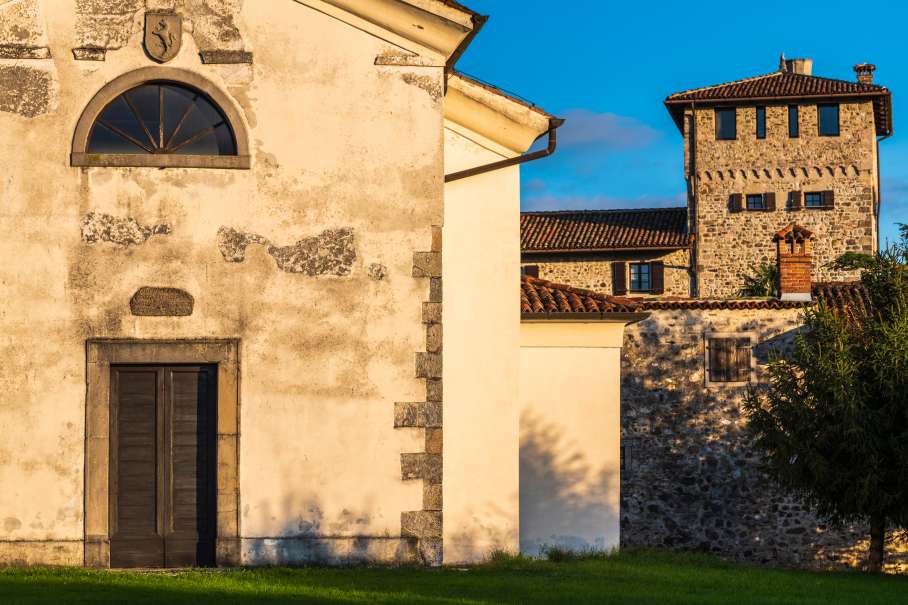Tuesday, 04 November 2025
Investment property in Italy for sale: find your next purchase
Italy’s property market is experiencing unprecedented growth, making investment property in Italy for sale more attractive than ever for international buyers. Each region in Italy offers distinct investment opportunities and attractions, catering to a wide range of preferences and goals. Rising high demand from remote workers, retirees, and investors has created exceptional opportunities across major cities and hidden gems alike. The time to act is now, as property values continue climbing and rental yields reach impressive heights. This is a unique opportunity for buyers seeking to enter the Italian market.
Smart investors are capitalizing on Italy’s diverse real estate landscape, from luxury Milan apartments to charming Tuscan farmhouses, appealing to buyers from around the world. Whether you’re seeking rental income, personal retreats, or long-term appreciation, Italian properties offer compelling returns paired with an enviable lifestyle.
Overview of the Italian property market in 2024-2025
Italy’s property market showed remarkable resilience in 2024. According to ISTAT (National Institute of Statistics), the overall house price index rose by 4.51% in Q4 2024 from a year earlier, marking the biggest growth recorded since Q2 2022. This represents a significant acceleration from earlier quarters.
Property prices in Italy increased by approximately 2.2% year-on-year in 2024, though a slight correction was observed at the beginning of 2025, reflecting global uncertainties and regional differences. The average price per square meter varies significantly by region, with some regions offering more affordable options and others commanding premium prices due to local demand and attractions.
Sales were on the rise in the second quarter of 2024, with average prices per square metre increasing across Italy. Buyers can choose from a wide range of property types and price points, depending on the region, as the market offers diverse options to suit different needs and budgets. The European Central Bank’s interest rate cuts have created more favorable financing conditions for property buyers.

Top regions and cities for investment property in Italy for sale
Milan remains Italy’s financial powerhouse with strong rental demand driven by its status as the country’s economic center. The city continues to attract international businesses and professionals, creating consistent tenant demand. Foreign investors find Milan particularly attractive due to its stable rental market.
Rome offers diverse investment opportunities from historic center apartments to modern developments. The capital’s combination of government employment, tourism, and cultural significance provides multiple income streams for property investors. Rome attracts a high number of visitors each year, making tourist rentals especially popular and profitable in the city.
Florence and Tuscany represent classic Italian investment destinations with strong tourism appeal. These regions benefit from consistent international visitor flows and cultural heritage that attracts both short-term and long-term renters. Properties in Tuscany are often within walking distance of historic towns and offer beautiful views of the rolling hills covered with olive groves and vineyards. The region is renowned for its rich history, wine production, and scenic landscapes, making it a top choice for those seeking authentic Italian lifestyle and investment opportunities.
Coastal Areas
Italy’s coastal regions, including Amalfi, Sardinia, Sicily, Puglia, and Liguria, offer some of the country’s most appealing opportunities for short-term rental investments during the warmer months. The Amalfi Coast and Costa Smeralda in Sardinia stand out as exclusive luxury destinations, renowned for their stunning scenery and premium property values. In contrast, Sicily and Puglia present more accessible entry points with strong growth potential, driven by increasing international tourism and rising visibility as alternative Mediterranean destinations.
These areas combine natural beauty with excellent returns from seasonal rentals, especially in seaside towns and heritage locations. However, investors should account for marked seasonality and the need for hands-on management during the high season
Bologna and Naples: hidden diamonds
Among Italy’s lesser-known gems, Bologna and Naples offer a balance of affordability and long-term potential. Bologna, celebrated as the culinary capital of Italy and home to the oldest university in the world, benefits from a stable demand generated by both students and tourists. Its vibrant economy and cultural prestige make it attractive for long-term and mixed-use investments. Naples, with its significantly lower property prices, serves as a strategic gateway to the Amalfi Coast, Capri, and Pompeii. Its growing tourism and infrastructure development position it as one of southern Italy’s most promising emerging markets, offering substantial upside for investors seeking value and capital appreciation.

Legal considerations when buying investment property in Italy
Buyer rights and restrictions
Foreign property ownership rights in Italy are remarkably open compared to many countries. EU citizens enjoy identical rights to Italian nationals, while non-EU citizens face minimal restrictions. Agricultural land requires special permits for non-EU buyers, but all other property types remain freely accessible.
Non-resident buyers must obtain an Italian tax identification number (codice fiscale) before completing purchases. This can be done at Italian consulates abroad or in Italy. Foreign buyers should consider creating Italian wills for their properties due to Italy’s forced heirship inheritance laws. If you are considering residence in Italy beyond property ownership, you may also be interested in the requirements for citizenship by residence.
What is a Compromesso and how it differs from the Rogito
The compromesso (or preliminary purchase agreement) is a binding contract signed between the buyer and the seller to regulate the future sale of a property. It usually involves the payment of a deposit by the buyer, which confirms the commitment to purchase.
While signing the compromesso does not immediately transfer ownership, it represents a formal promise to complete the transaction, and the notary may request the buyer to pay an advance on the total price, initiating the bureaucratic process. The compromesso can also be signed after the initial property agreement, but it must occur within 90 days of that purchase
The rogito is the final contract that formalizes the transfer of ownership of the property. It is drafted and authenticated by a notary, who verifies the accuracy of the property’s legal and cadastral documentation. At this stage, the buyer can also carry out technical inspections to ensure that the systems and building conditions comply with current regulations. In most cases, the notary must finalize the rogito within 30 days from the date of the compromesso. If the buyer fails to meet this deadline, they risk losing the rights acquired under the preliminary contract, and the seller may terminate the agreement and retain ownership of the property.
Tax obligations and ongoing costs
The taxes payable in Italy depend on the type of property purchased, the buyer’s financial profile, and the nature of the seller.
When purchasing a property, buyers are subject to three main taxes: the registration tax, the mortgage tax, and the cadastral tax. In addition, property ownership taxes such as IMU and TASI apply once the property is owned.
Focusing on the taxes due at the time of purchase, the situation varies depending on whether the seller is a private individual or a company.
- If the seller is a private party, the buyer must pay the registration, cadastral, and mortgage taxes. These are applied either as a fixed amount (if the transaction is subject to VAT) or at a proportional rate of 9% (if VAT does not apply). A reduced rate of 2% applies when the purchase qualifies for the first home benefit (prima casa).
- If the seller is a company, the transaction is typically subject to VAT under the provisions of Presidential Decree No. 633/1972, and the related taxes are applied accordingly.
Final thoughts on investing in property in Italy
Investment property in Italy for sale presents compelling opportunities given the strong market performance demonstrated by recent ISTAT data. The combination of price appreciation, cultural appeal, and legal protections makes Italian real estate increasingly attractive to international investors.
Success requires thorough market research, legal compliance, and realistic financial planning. Partner with experienced professionals like Aprigliano International Law Firm, who understand Italian property law and can guide you through the purchase process. Contact us for consultation.